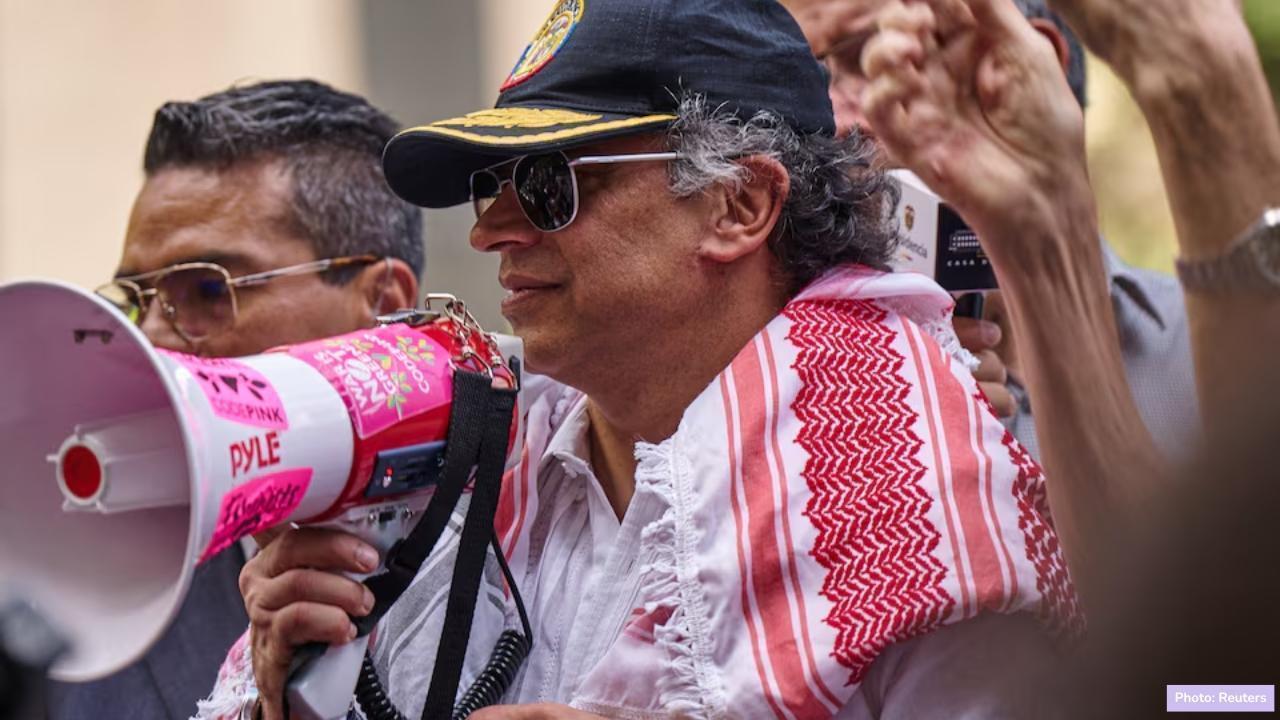
Post by : Monika
On September 26, 2025, the United States government announced that it had revoked the visa of Colombian President Gustavo Petro. This decision came after President Petro participated in a pro-Palestinian demonstration outside the United Nations headquarters in New York City.
The rally drew global attention because Petro made statements that were critical of the U.S. government and President Donald Trump. He urged the creation of a global armed force to support Palestinians and called on U.S. soldiers to disobey Trump’s orders, telling them to “obey the orders of humanity.”
The U.S. State Department described Petro’s actions as reckless and incendiary, saying that they posed a serious risk to diplomatic norms and international relations. Revoking a sitting president’s visa is a rare and strong diplomatic move, highlighting how seriously the U.S. viewed Petro’s remarks.
This decision further strained relations between the United States and Colombia, which have already been tense over several issues in recent years, including immigration, counter-narcotics operations, and political disagreements.
President Gustavo Petro, who was elected in 2022, has been known for his critical stance toward U.S. policies, particularly regarding Latin America and conflicts in the Middle East. Petro has frequently spoken out against what he sees as aggressive U.S. actions abroad and has accused Washington of complicity in situations like the conflict in Gaza.
During his recent UN speech, he called for criminal proceedings against the U.S. over missile attacks on suspected drug-carrying vessels in the Caribbean. These remarks, along with his comments at the pro-Palestinian rally, were seen by the U.S. as undermining diplomatic relations and disrespecting its government.
The context for Petro’s remarks includes the ongoing conflict in Gaza, which has been a major humanitarian crisis since Hamas launched attacks on Israel in October 2023. The Israeli military’s response has resulted in significant casualties, with Palestinian health authorities reporting over 65,000 deaths.
Israel and the United States have rejected claims of genocide, insisting that their actions are defensive measures to protect civilians and national security. Petro’s outspoken criticism of U.S. involvement in the conflict was therefore highly sensitive and controversial, especially coming from a foreign head of state.
Diplomatic tensions between Colombia and the United States have been growing over the past few years. One of the earliest points of disagreement occurred after Petro refused to allow U.S. military flights carrying deportees as part of Trump’s immigration crackdown.
The Trump administration responded by threatening tariffs and sanctions, although these measures were later avoided when Colombia agreed to accept the migrants. Despite this resolution, tensions remained under the surface, fueled by differences in political ideology and approach to bilateral agreements.
Another major source of tension is counter-narcotics cooperation. Colombia has long been a partner in U.S.-led efforts to combat drug trafficking, particularly coca cultivation. Under Petro’s leadership, the Colombian government initially promised agreements with armed groups and sought to reduce coca cultivation through social programs and negotiation.
However, progress has been slow, and the U.S. recently placed Colombia on a list of countries it said had failed to meet their counter-narcotics obligations. This move was seen as a direct challenge to Petro’s leadership and policies.
The revocation of Petro’s visa is particularly significant because it targets the personal ability of a sitting head of state to travel to the United States. Visa cancellations are rare in international diplomacy and often signal serious displeasure.
By revoking Petro’s visa, the U.S. sent a strong message that actions seen as interfering with its internal affairs or inciting disobedience among its military would not be tolerated. This decision is likely to have lasting effects on diplomatic relations between the two countries, at least in the short term.
Petro’s participation in the pro-Palestinian rally was part of a broader series of events during the United Nations General Assembly week. World leaders, diplomats, and activists gathered in New York to discuss global issues, including the ongoing Gaza conflict, climate change, and international security. Petro used the platform to call attention to what he views as injustices in Gaza and to push for international intervention. While these remarks were welcomed by some activists and human rights groups, they drew sharp criticism from the U.S. and Israel, who saw them as inappropriate for a sitting foreign president.
The United States emphasized that Petro’s call for U.S. soldiers to disobey their commander-in-chief was particularly alarming. Military discipline and obedience are core principles in any country, and public statements encouraging disobedience are considered highly provocative. U.S. officials argued that such remarks could undermine morale, security, and international norms if left unchecked. The revocation of the visa was therefore framed as a necessary response to maintain respect for diplomatic protocol and international law.
In Colombia, reactions to the U.S. decision were mixed. Supporters of Petro praised him for standing up to the United States and drawing attention to humanitarian issues in Gaza. Critics, however, warned that the visa revocation could damage Colombia’s international relations and economic ties with Washington. The U.S. is one of Colombia’s largest trading partners, and diplomatic tensions could affect trade, security cooperation, and regional stability.
Experts noted that this incident highlights the challenges faced by leaders in a globalized world where statements can have immediate diplomatic consequences. In the age of social media and 24-hour news cycles, comments made during public demonstrations or speeches can quickly become international incidents. Leaders must balance domestic political goals and international responsibilities, especially when engaging with contentious issues like conflicts in the Middle East.
The situation also underscores the U.S.’s willingness to use visa policies as a diplomatic tool. While traditional diplomacy often involves negotiations, sanctions, or public statements, visa revocation is a direct and personal measure. It not only signals disapproval but also limits personal access to U.S. territory, which can impact a leader’s ability to participate in international forums, negotiate agreements, or meet with key officials.
In the coming weeks, both countries will need to manage this diplomatic tension carefully. Colombia may seek to respond through formal diplomatic channels, expressing concern over the visa revocation while maintaining broader cooperation in trade and security. The United States, meanwhile, will continue to emphasize its stance that public statements inciting disobedience or criticizing U.S. policies in a provocative manner are unacceptable.
This incident may also affect Petro’s international image. On one hand, his actions may be seen as bold and principled, particularly by those who sympathize with his criticism of U.S. foreign policy. On the other hand, it could raise questions about his approach to diplomacy and willingness to engage with allies in constructive dialogue. Managing the narrative will be important for Colombia as it navigates the potential fallout.
Historically, U.S. visa revocations have been rare but have occurred in cases where foreign individuals are perceived to have violated laws, threatened U.S. security, or engaged in behavior deemed unacceptable.
Applying this measure to a sitting president is extraordinary, reflecting the seriousness with which Washington viewed Petro’s statements. It also demonstrates the complex nature of international diplomacy, where words and actions carry significant consequences.
In summary, the revocation of Colombian President Gustavo Petro’s visa by the United States is a major diplomatic development. It follows his participation in a pro-Palestinian rally in New York, where he called for global action to support Palestinians and urged U.S. soldiers to disobey orders.
The move has increased tensions between the two countries and highlights the challenges of balancing domestic political positions with international responsibilities. As Colombia and the United States navigate this new situation, both sides will need to engage carefully to avoid further escalation and to maintain broader cooperation on trade, security, and regional issues.
The incident also serves as a reminder that in today’s interconnected world, leaders’ statements and actions can have immediate international consequences. Diplomacy requires careful communication, respect for international norms, and attention to the potential impact of public remarks. Moving forward, how Colombia and the U.S. manage this issue may set important precedents for diplomatic relations and crisis management in the region.
United States Colombia Gustavo Petro
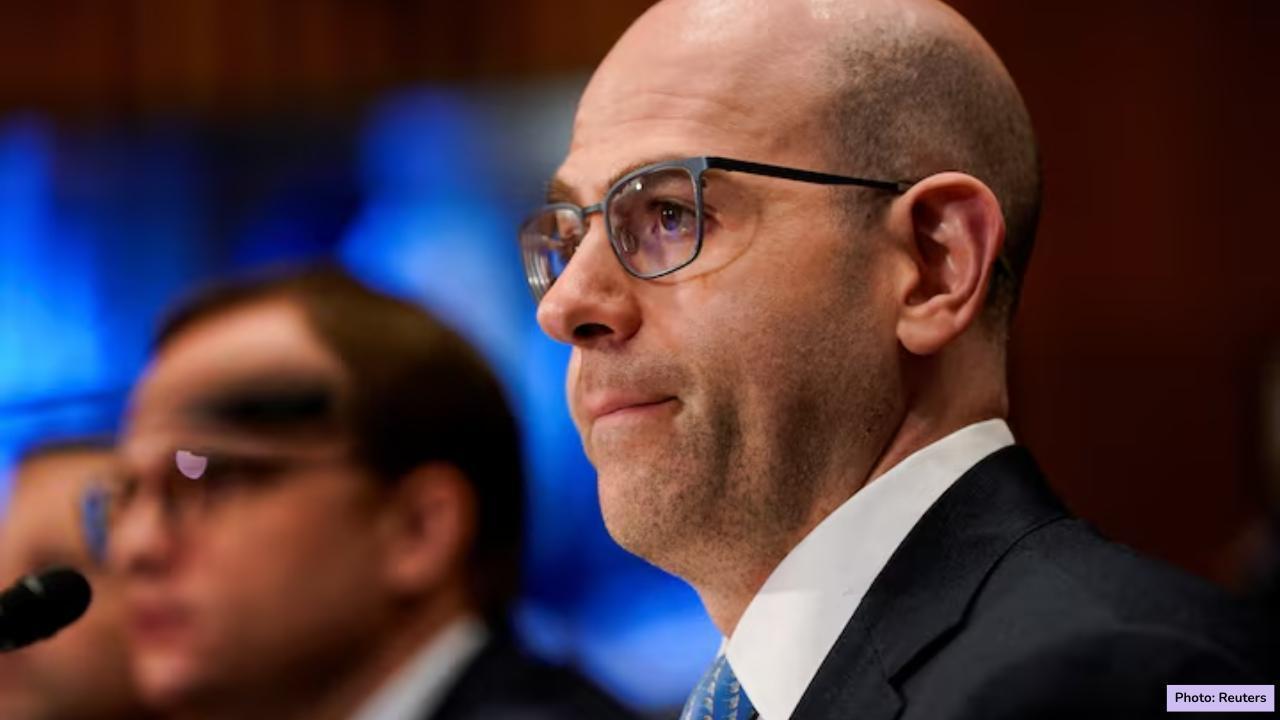

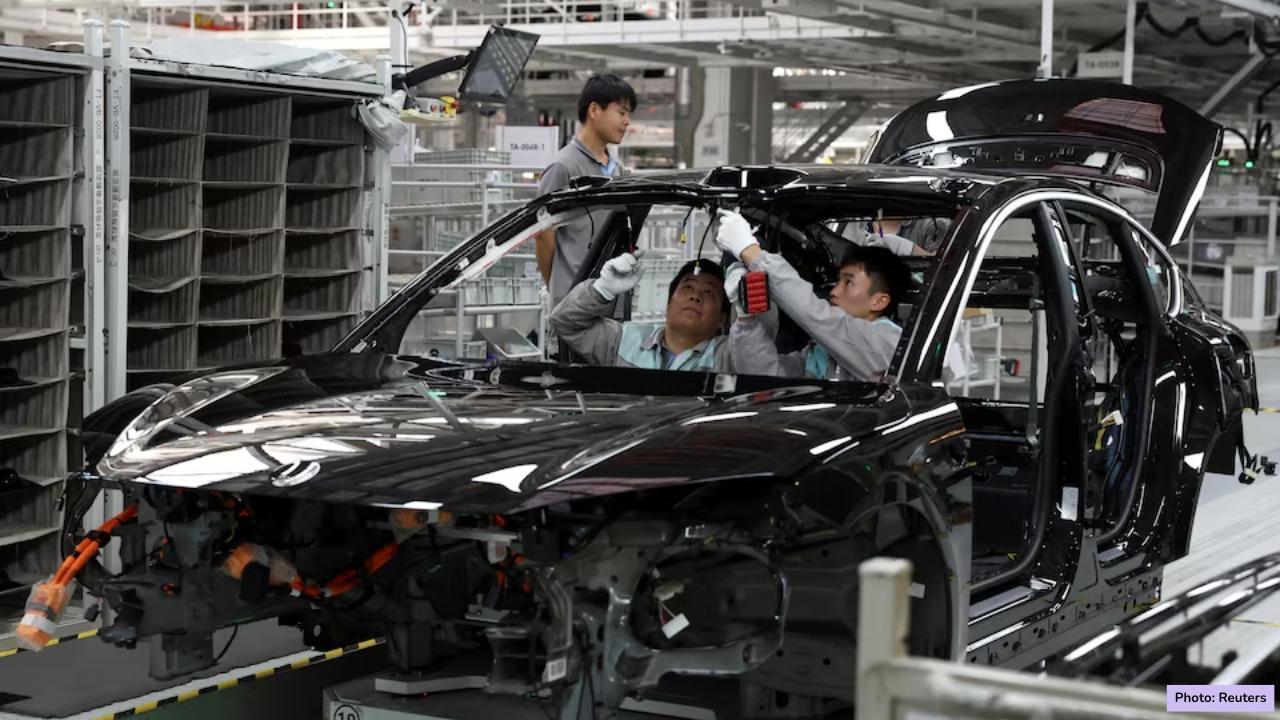
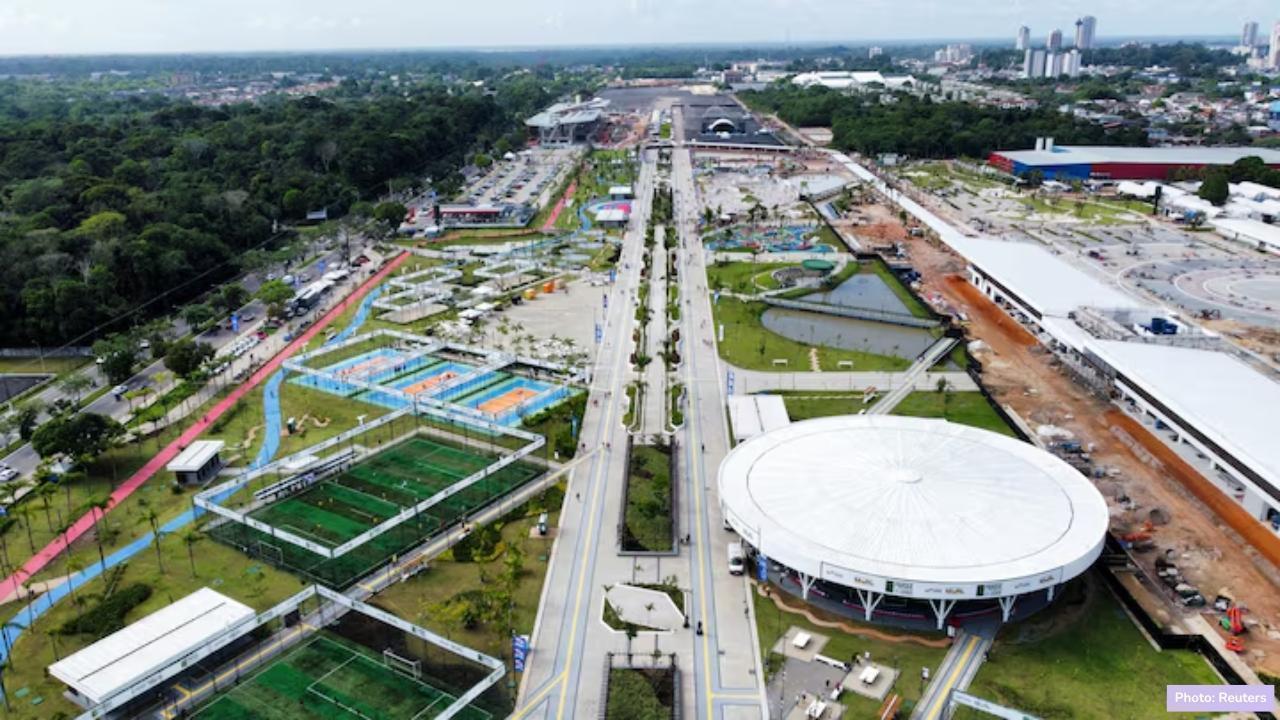
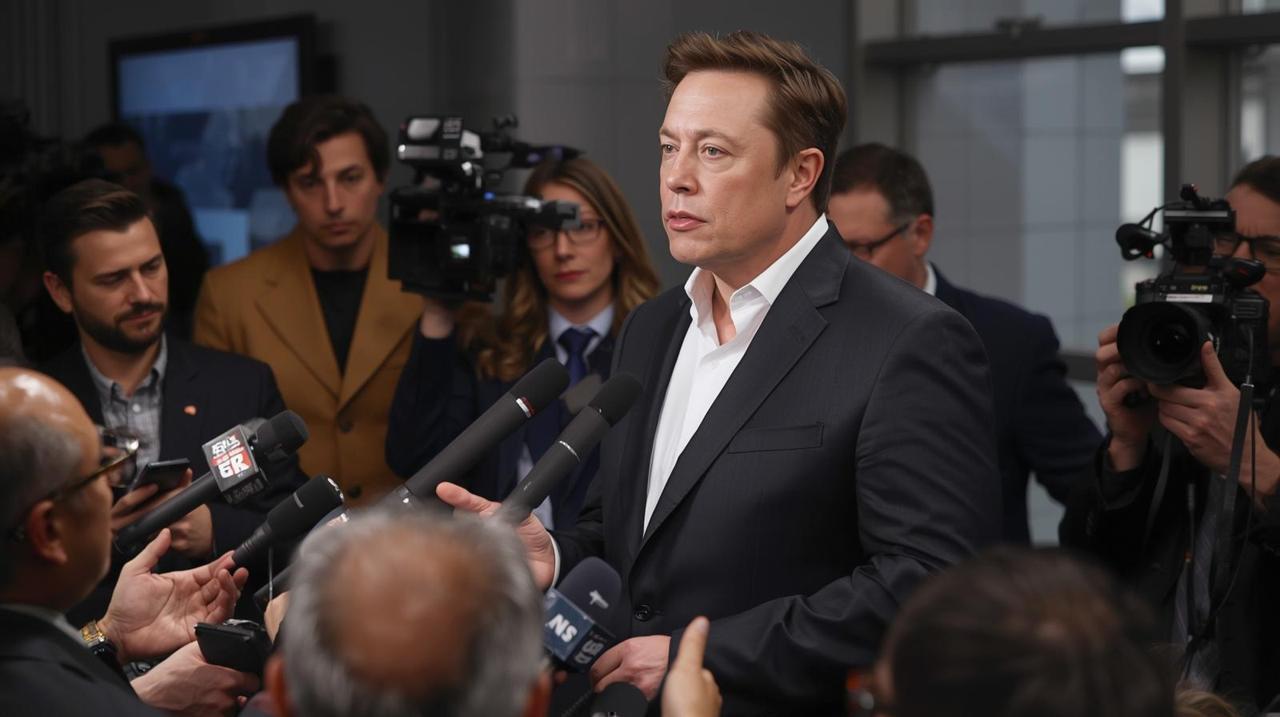

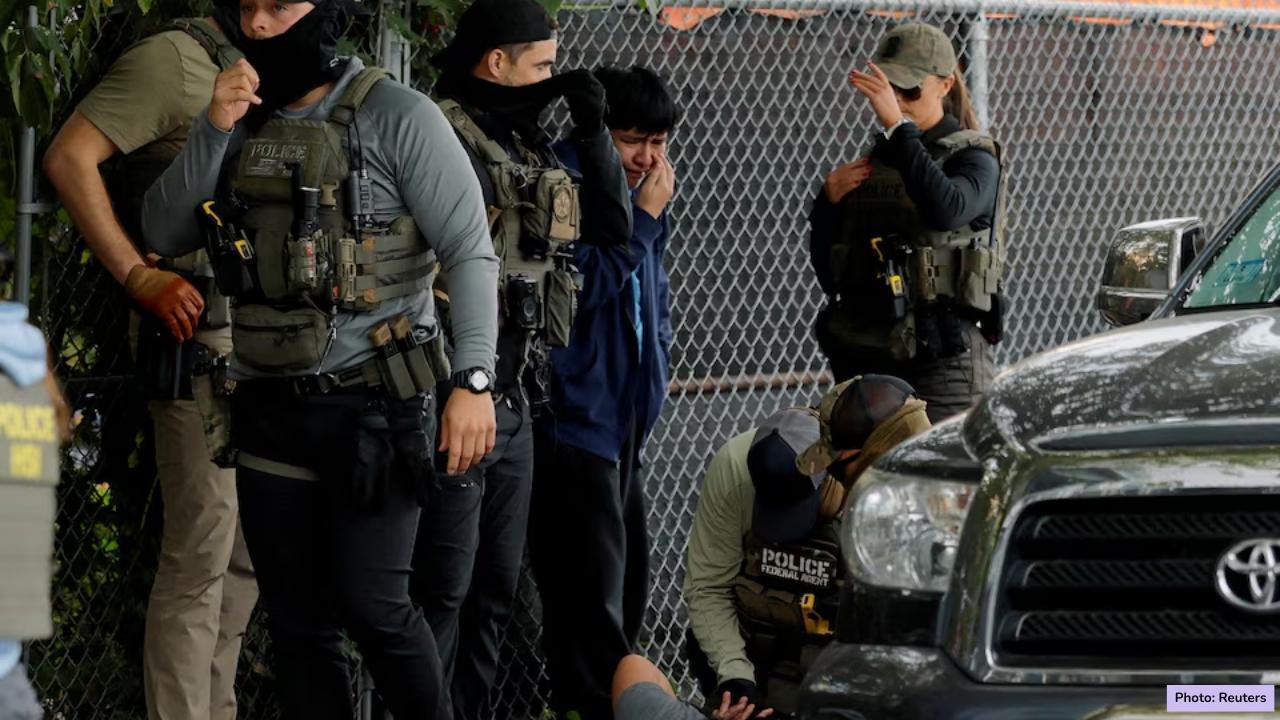
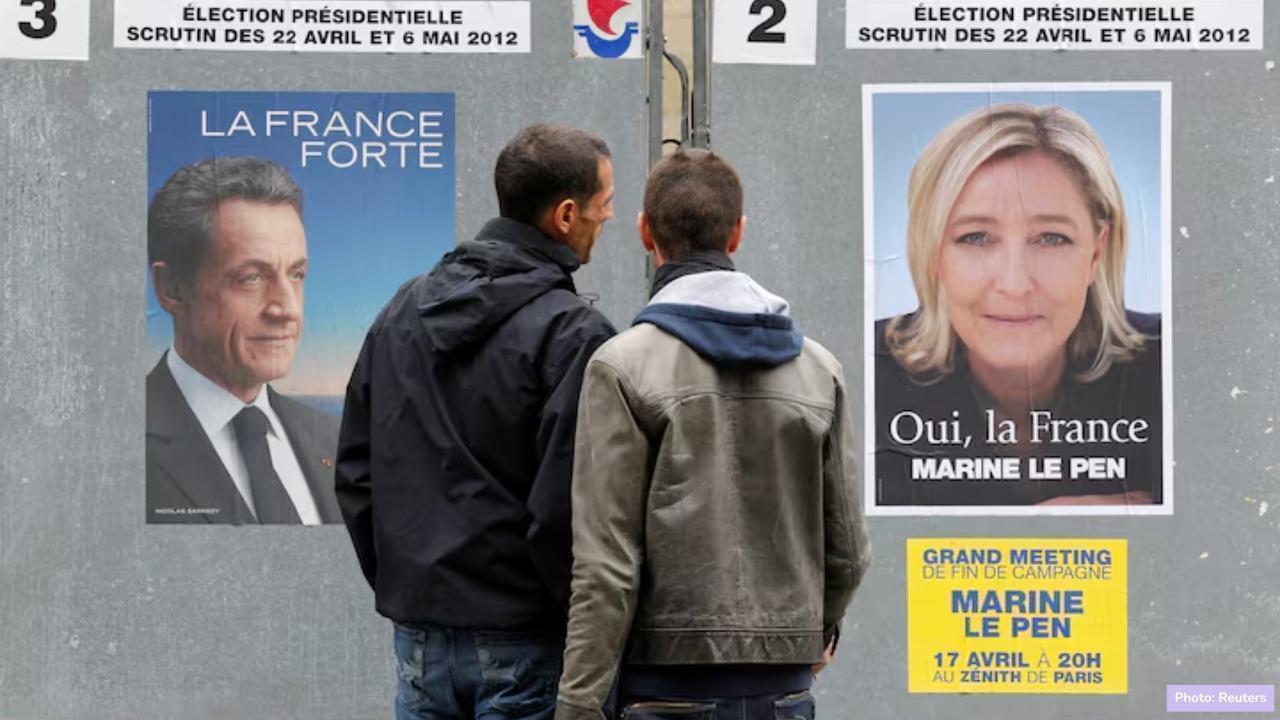


Fed's Miran's Calculation May Overstate Immigration's Impact on Inflation
Experts question Federal Reserve Governor Miran’s claim that reducing immigration will significantly

China's Industrial Profits Grow by 0.9% in Early 2025
China's industrial profits increased by 0.9% from January to August 2025, showing signs of recovery

COP30 Urged to Address Climate Justice and Historical Injustices
Over 240 organizations call on COP30 to link climate justice with reparations for historical wrongs

Tropical Storm Bualoi Hits Philippines: 10 Dead, Thousands Displaced
Tropical Storm Bualoi has caused severe flooding and landslides in the Philippines, leading to at le

ICE Actions Spark Protests and Concerns in U.S. Cities
Recent ICE operations in New York, Chicago, and Boston have led to public outcry, with incidents of

Sarkozy’s Jail Sentence Sparks Debate on Political Justice in France Ahead of Le Pen Appeal
Former President Nicolas Sarkozy jailed 5 years for illegal Libya campaign funds, sparking debate on